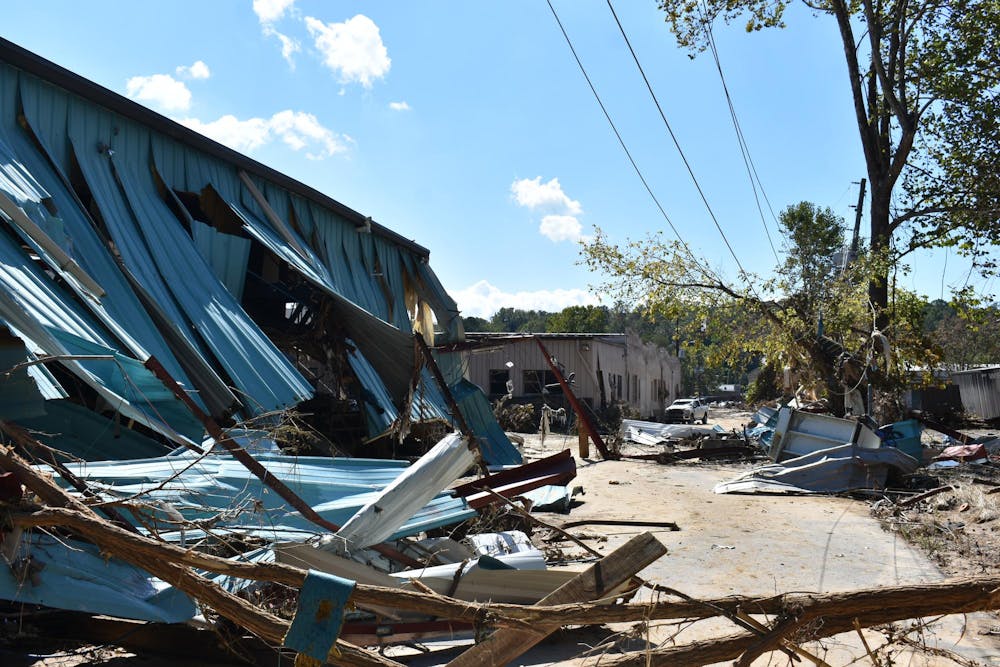Across western North Carolina, residents are reeling after entire towns were swallowed by one of the deadliest hurricanes to make landfall in the United States since the 1950s.
On Sept. 25, Hurricane Helene hovered around Florida as a Category 4 hurricane, where it would begin its destructive march across the country and ultimately arrive in western North Carolina on Sept. 27. During these three days, western North Carolina experienced unprecedented and unrelenting rainfall, resulting in cataclysmic flooding, infrastructure damage and rising death tolls across southern Appalachia.
As the urgency of the devastation wrought upon the western half of our state became apparent, the UNC student community quickly mobilized. The outpour of support for those affected by Helene has been overwhelming, an inspiring wave of mutual aid and community action that we should strive to sustain, now and in the future.
My classmates braved highways submerged under feet of water to drive food and supplies back to their hometowns. Others hosted friends who were forced to evacuate UNC-Asheville and surrounding areas, showing them hospitality and support during a time of extreme upheaval.
Nearly overnight, donation drives, fundraising events and blood drives were organized to bring relief to western North Carolina. From the UNC Marathon Team to UNC’s Residence Hall Association, student organizations across campus worked to support western North Carolina through community donation drives.
Especially inspiring were the ways that my peers utilized their creativity and unique talents to fundraise. The UNC Student Government Executive Branch hosted a bake sale led by student volunteers. Wisteria, a student-run print magazine, sold flower bouquets, zines and prints to fundraise for N.C. aid efforts.
The UNC community’s mobilization to provide support for western N.C. during this natural disaster is an encouraging beacon of hope, exemplifying the kind of mutual aid that we should strive to provide for our community members during times of crisis.
Solidarity across the state is especially necessary for those living in underserved regions, such as rural Appalachian communities. These areas have been historically neglected, resulting in limited access to public health infrastructure and disparities in overall health outcomes. In the devastating aftermath of Hurricane Helene, these communities face months and years of rebuilding.
Community aid and governmental support is essential to ensuring that western North Carolina can recover. However, as divisive rhetoric intensifies during the remaining months before the election, social and political polarization stand to threaten our ability to provide mutual aid in times of crisis.



